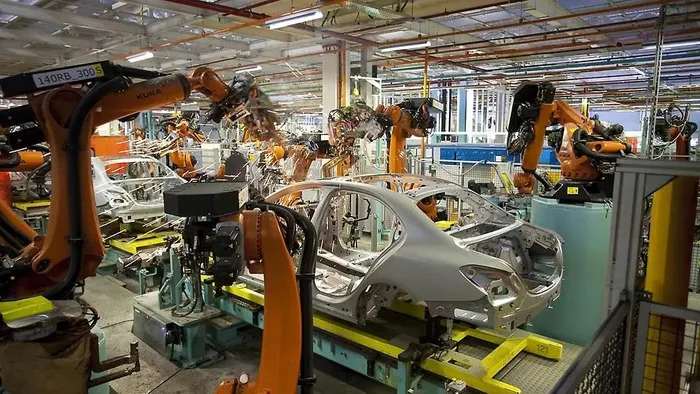Volkswagen deal offers hope for Eastern Cape as Mercedes-Benz considers South Africa exit
AUTOMOTIVE

Mercedes-Benz has temporarily halted production at its East London plant. The factory in East London plays a pivotal role in the province's economy, exporting nearly 90% of its vehicles to the US.
Image: Supplied
Banele Ginidza
Volkswagen South Africa's (VWSA) recent agreement to become the sole global manufacturer of the VW Polo—producing both left and right-hand drive models for all markets—offers a beacon of hope for the struggling Eastern Cape Province.
This announcement comes on the heels of alarming news from Mercedes-Benz South Africa (MBSA), which has indicated that the newly imposed 30% tariffs on exports to the United States may force the company to exit the country entirely.
During a briefing by the Eastern Cape and Northern Cape Provincial Treasuries, acting Premier Mlungusi Mvalo expressed grave concerns about the potential departure of MBSA.
Mvoko said Mercedes Benz had indicated that it would likely leave the country with the composition of the 30% tariffs, adding that this would be devastating for the province's economy.
The factory in East London plays a pivotal role in the province's economy, exporting nearly 90% of its vehicles to the US.
"You cannot imagine East London without Mercedez Benz. MBSA exports almost 90% of their cars to the US. In our interaction with MBSA, they have said that given these tariffs, it proves it will be difficult," Mvalo said.
"They made it clear that with the tariffs, they think they might have to rethink our discussion with them. We asked them to think about looking for other markets because the US market is not guaranteed and it is a difficult market. We are hoping that they will consider.
"We are anticipating that MBSA might leave South Africa, but we are hoping that the discussion we have had at international level, as we had a delegation going to Stuttgart, that might save it.
"Because if MBSA goes, even the East London Special Economic Zone would be gone because half of what the companies established there are suppliers to MBSA. And I am not talking about all those around East London. The livelihood of the whole East London, King Williams Town, is dependent on MBSA."
The rampant anxiety surrounding MBSA’s future escalated as Mvalo confirmed that the automotive sector, which accounts for a significant portion of the province's economic activity, might be facing dire challenges.
"We have also lost Goodyear Tyres just a month ago. This is the second tyre manufacturing company that we have lost, as you know we lost Bridgestone Tyres last month. It's also going to have a ripple effects on all the industries because as you now that the Eastern Cape hosts the majority of the suppliers in the country in the automotive sector. About 80% of suppliers are in the Eastern Cape, you can imagine what will happen," Mvoko said.
"Fortunately, VW is still with us with a new deal of manufacturing Polo for the whole world. So it just saved us but you will never know with things. So things are not very good with us. It is going to contribute to the high unemployment rate because now things are really challenging to say the least."
Mvoko said the agriculture sector was not performing as anticipated as the second tier economy.
Meanwhile, the Motor Industry Staff Association (MISA) said the decision by US President Donald Trump to impose 30% tariffs on the export of vehicles, components, tyres and parts exported from South Africa to the United States will kill any possible economic growth in South Africa.
Martlé Keyter, MISA’s CEO for operations, said the retail motor industry was already struggling amidst the uncertainty of tariff percentage increases.
Keyter said the union was experiencing an increase in employers closing their doors, restructuring in terms of Section 189 of the Labour Relations Act or embarking on short time.
According to Tiekie Mocke, manager of MISA’s legal department, the negative impact on exports forced an employer within the retail motor industry to cut a five-day workweek back to a four-day workweek, effectively leaving employees out of pocket with at least one week’s income per month.
"This was done pro-actively to prevent retrenchments but cannot continue indefinitely," Mocke said.
BUSINESS REPORT